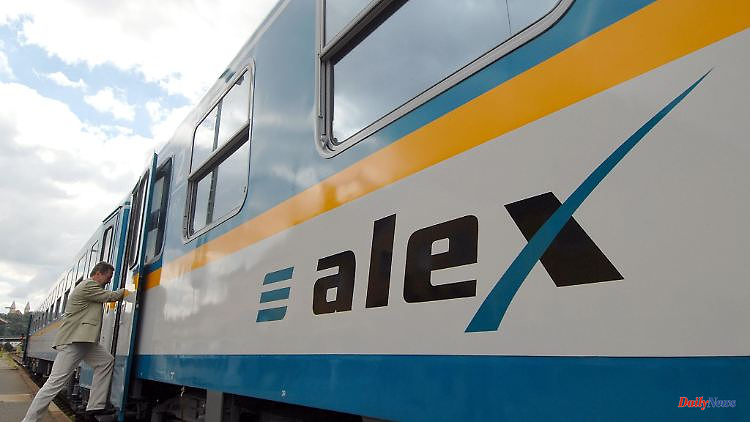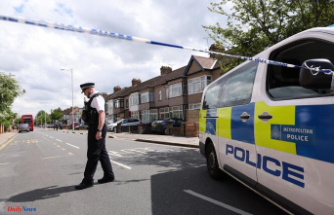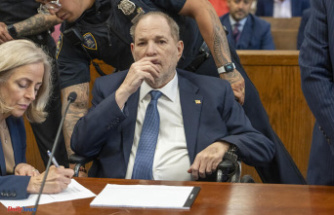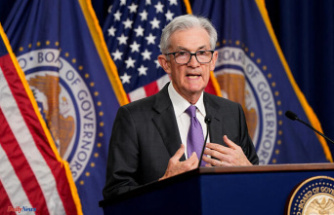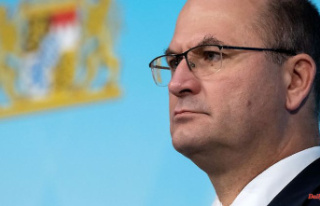On average, trains from Prague were delayed by almost a quarter of an hour when they arrived in Munich in 2022. From the point of view of the Greens in the state parliament, this is an unacceptable situation. They accuse the state government of political failure.
Munich (dpa / lby) - If you take the train from Prague to Munich, you can assume that you will not arrive on time - the average delay is 14:55 minutes. This is the result of a request from the state parliament Greens to the state government, which is available to the German Press Agency. In 2021, there was an average of almost six minutes late. In the opposite direction, the ALX RE 25/EX 355 trains are also on average five minutes late. The reason for the delays in half of the cases are border controls in the stationary train. The Greens are calling for a "Bahn Turbo".
According to the inquiry, the delay times are not only longer, they are also increasing. According to the Greens, Schwandorf is the bottleneck. The number of missed connections there increased more than fivefold from 2021 to 2022 - from 7.6 to more than 39 percent. 40 percent of passengers would have missed their connecting train there.
The Greens criticize the Prague-Munich train connection as a permanent problem. The journey takes 5:35 hours, which is "much too long for connecting two metropolises". The train parts from Prague and Hof are coupled together in Schwandorf. If one part of the train is significantly delayed, the other departs without waiting, explains a spokeswoman. Passengers then have to wait in Schwandorf for the next train.
The important route Prague-Munich is completely unattractive due to the massive delays, said Green mobility spokesman Markus Büchler. The cause is the misguided transport policy of the CSU. You have neglected the infrastructure of this route for decades. "The border controls in the stationary train make the situation even worse. Currently, operation on this route is a single design flaw. Political failure across the board!"
According to Bühler, the state government under Prime Minister Markus Söder (CSU) is responsible "for the dilapidated condition" of the Munich-Prague connection. The European policy spokesman for the Greens in the state parliament added: "Border controls must not be at the expense of train passengers. A forward-looking transport policy recognizes that." There are well-functioning examples such as the Munich-Salzburg route. There, random checks would be carried out in the moving train. "It's effective, saves time and nerves. Stopping the train, on the other hand, is unacceptable."
The state railway, which operates the route on the German side of the border, had itself criticized the delays last summer, referring to the around 15-minute border controls in the stationary train in Furth im Wald. However, these were not the only reason, according to a spokeswoman at the time. The trains often arrive late in Furth im Wald, but that is the responsibility of the Czech operator.

